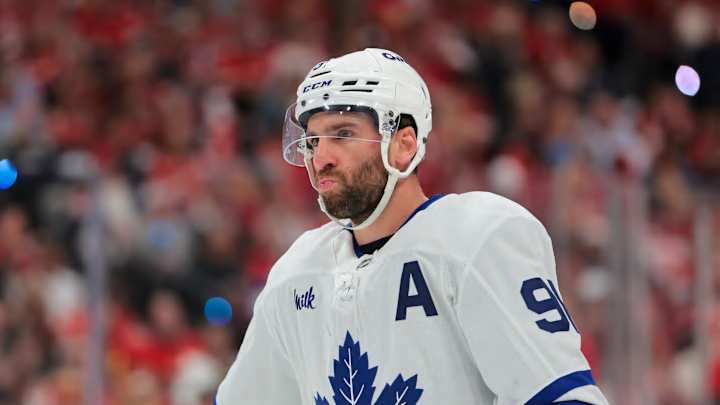John Tavares may no longer wear the captain's "C" for the Toronto Maple Leafs, but his new deal is the first significant step toward what general manager Brad Treliving is looking for.
In his postseason address to the media following the Leafs' second round loss to the Florida Panthers, Treliving highlighted the need to change the team's DNA.
Most observers speculated that meant roster upheaval with long-time core players Tavares and Mitch Marner headed for unrestricted free agency.
Marner still appears destined to play elsewhere next season, but for those playing in Toronto next year, Tavares' extension represents a significant monetary sacrifice for the benefit of the team. It's the most noteworthy individual forfeiture of a Maple Leafs player over the past decade.
Under the Leafs' former regime, president Brendan Shanahan and general manager Kyle Dubas, the team's management caved to its players.
Previous contracts for Auston Matthews, William Nylander, Tavares, and Marner included no-movement clauses and placed each of them among the top 12 in cap hit. They were paid for their regular season production and didn't have a single prolonged playoff run.
Treliving's extensions to Matthews and Nylander were fair for both sides, with neither team nor player scoring a significant victory.
Matthews took less AAV for a shorter term, allowing him to hit the free agent market again during his prime years and with an increased NHL salary cap.
Nylander opted for the security of a maximum eight-year term with a $11 million AAV. That salary is very reasonable for a consistent 40-45 goal-scorer, yet the Maple Leafs take on risk at the back end of the deal when the right-winger is in his mid-thirties.
Tavares' new contract benefits the Leafs in multiple ways. First, they now have a player who can assume the position of second or third-line center, depending on how the forward units come together.
They have a player who can contribute offensively, especially on the power play, is useful at both ends of the ice, and consistently has one of the NHL's top faceoff winning percentages. Had Tavares hit the open market, he would have received nearly twice the AAV, likely in the $7 million range.
The Tavares' deal allows the Maple Leafs to better prepare for the opening of unrestricted free agency. It gives the Leafs more clarity on their salary cap as they work towards a deal for restricted free agent Matthew Knies.
Most importantly, Tavares has sent a message to his teammates and the fan base that it means something to wear the uniform of the Toronto Maple Leafs. For the team to meet its championship goal, individual goals must be eschewed for the betterment of the group. It's a missive that is long overdue.
